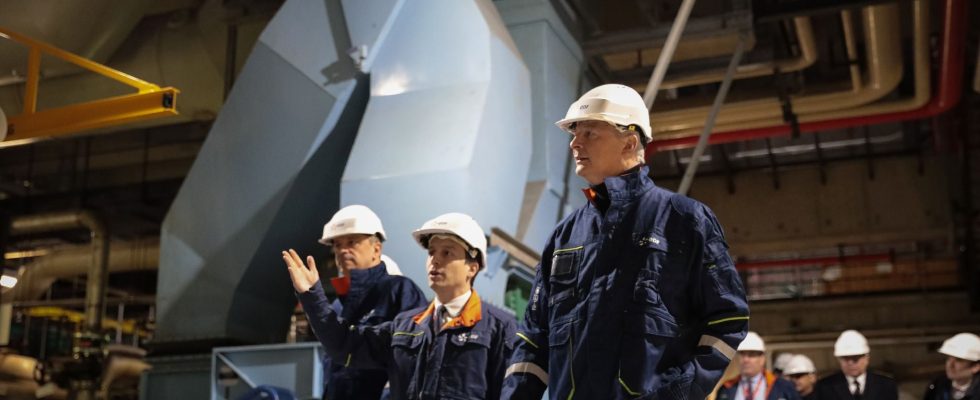There are ministries which are dissolved, cut into pieces under different supervision, and others which become “super”. It’s the game of rework. How then can we define that of Bruno Le Maire? A “mega ministry”? Under Edouard Philippe then Jean Castex, his portfolio of Economy had been extended to Finance then to Recovery. Macron re-elected, he added industrial and digital sovereignty to his business card. And, since the reshuffle of January 11, he has recovered the very strategic portfolio of Energy, an essential lever for an ecological transition which remains under the control of Christophe Béchu. “Bad news for the Ministry of Ecology. The “energy” skill is essential for a balanced path towards the ecological and energy transition”, reacted on X (ex-Twitter) Philippe Martin, former tenant of the Hôtel de Roquelaure (2013-2014), which evokes “a shift”.
Emmanuel Macron thus marks a return to the division in force before the Grenelle de l’Environnement in 2007 and the birth of a “super ministry” of the Environment. “The president appoints Sarkozy ministers but broke with Sarkozy’s choice,” notes, not without irony, Arnaud Gossé, lawyer specializing in environmental law. Above all, he endorses a logical line drawn since his election and supported during Belfort’s speech on his energy policy, in 2022, with his major nuclear revival program. “This is a sign that energy is considered less a subject of ecological transition than a lever of sovereignty and reindustrialization,” indicates an expert in the sector. In Le Figarojust a few minutes after the announcement of the reshuffle, Bruno Le Maire said no less about the executive’s conception of energy: “Having [sa] responsibility means giving ourselves the best chance of accelerating the reindustrialization of the country and the realization of the French nuclear program.”
With a return to Bercy, the Head of State responds favorably to the requests of a nuclear industry which wanted this connection. Loyal supporter of the atom, Bruno Le Maire was already very proactive in taking charge of certain aspects linked to this portfolio, such as electricity prices. The rise of the State in EDF’s capital, subject to very high economic stakes, must also have weighed in the balance. It is now up to the Minister of the Economy to manage the enormous issue of reviving nuclear power – the construction of six new EPR reactors, and eight as an option – and the continuation of the “energy sovereignty” bill, recently presented by Agnès Pannier. -Runacher. In his new clothes, Bruno Le Maire is wasting no time: he will be visiting the North (59) this Monday, and in particular the Gravelines nuclear power plant. “This will be his first trip since the appointment of the government of Prime Minister Gabriel Attal, and since he has been in charge of energy,” his office even specifies.
“Where is the climate?”
Energy to Economy, this scenario recalls a short stint between 2010 and 2012, when Eric Besson was in charge of Industry, Energy and the Digital Economy, with Christine Lagarde, then at Bercy. Certainly, the energy administration had not been entirely detached from the Ministry of Ecology. But nuclear power was going through a pivotal period at the time: difficulties with Flamanville, Fukushima accident… This resonates with the current situation, minus the mistakes of the past decade, as with this moratorium at the end of 2010 on support for photovoltaics which had caused massive layoffs and hampered the development of the sector. Even if the crucial importance of renewable energies for a carbon-free and sustainable mix is no longer to be proven, the ENR union points out “a bad signal regarding political voluntarism” on the energy transition.
“Where is the climate in all this?” asks Anne Bringault, skeptically. The director of programs at the Climate Action Network (RAC) regrets the end of a “major ministry which allows us to have the sectors – energy, transport, housing – which have the greatest impact on the environment”. She deplores a “slicing” and fears “big risks of inconsistencies”, with arbitrations which could turn even more in favor of Bercy. Arnaud Gossé also fears, within the services themselves, that this change will cause “a risk of isolation, of weakening of the administration strictly in charge of nature”.
With the Ministry of Energy Transition living its final days, the precise contours of this recomposition remain to be known. Will Industry and Energy be grouped together? Which ministers will be responsible for the key administration of the Directorate General for Energy and Climate? From this ocean of questions emerged two elements of stability: the confirmation of Christophe Béchu, however very low in the protocol order, and the continuation, under the authority of the Prime Minister, of the general secretariat for ecological planning (SGPE). Antoine Peillon, who would remain in charge, will now have to deal with the ambitious Bruno Le Maire, who has immense scope for action.
.
